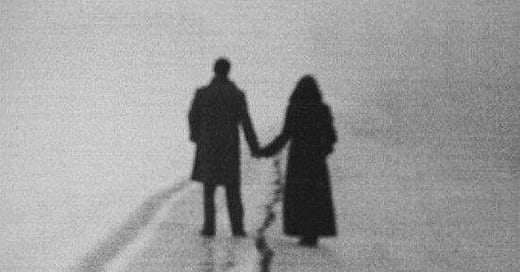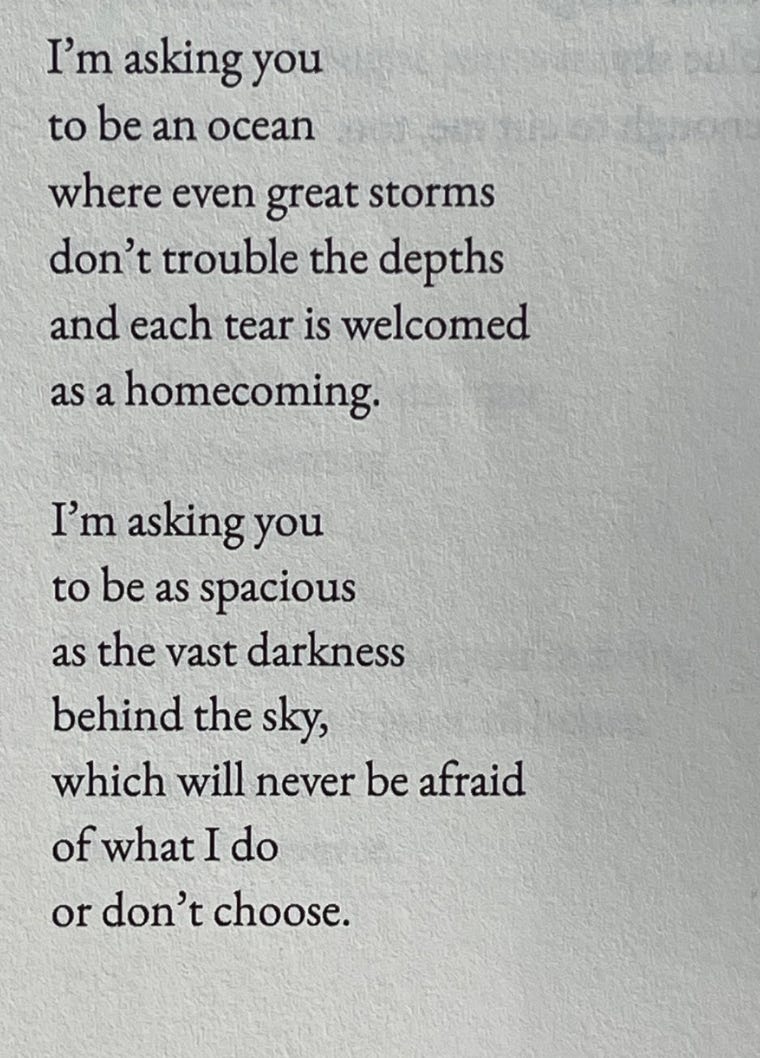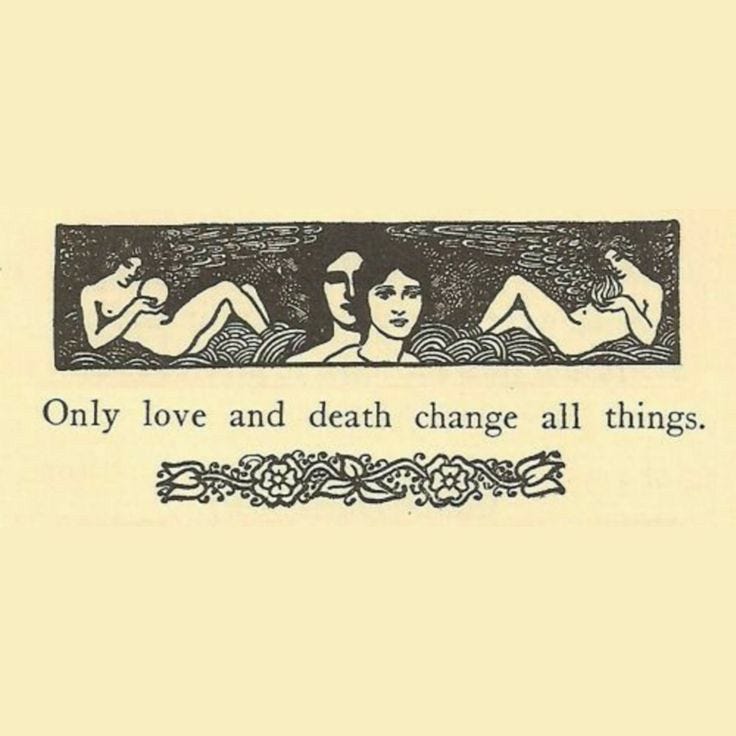fourteen.
This newsletter is here to connect you to your five senses and your grief at times when life and death make no sense. Consider it an imperfect “grounding exercise” for the month.
On aloneness while grieving with a friend, lover or partner.
There’s a point when anger comes. For me, it’s when I’ve let the wrong ideas, things, and companions close. When I’ve tried to share what’s vulnerable, still unknown in me, and felt myself more lost than found.
Maybe these companions have cast shame, shown impatience, corrected and solved, even referred a therapist. Maybe they’ve forfeited, reminded me grief is not, in any measure, theirs to carry. Their eschewal is not cruel, but it is not kind either. Such a rebuke festers a complicated wound.
I’ve apologized for the inconvenience, for my mess — large, incoherent feelings “unworthy” of attention.
And sometimes sharing grief has felt unsafe. Because judgement and remove thwart healing (individual and communal). Solving grief as if it were a problem, makes grief a concept not a condition. As if the solution is in the “problem”, the way through direct, and the choice to not grieve, not come undone, not change, simple.
Nobody should feel more alone or precariously vulnerable in the presence of a lover, a partner, or a friend. No lover, partner, or friend should make a person feel shame, embarrassment, inferiority, or weakness — in life at large, especially not while grieving.
Grief will untangle what heals from what hurts. Come close to the former, and consider the space needed from the latter. Care is not owed to those who are careless with your heart. A person that truly sees and wants to understand, stands by with empathy and compassion. It is not your responsibility to perform grief for it to be real to someone else.
Love, the kind worth keeping near, is not earned. Consideration and understanding need not be won. I trust (some days more than others) that someone can love me, not despite grief, but for it. I know it’s possible because its a love I carry for the grievers of my life. Deep and surefooted — a love inspiring awe and admiration, not indebtedness and inadequacy.
A love that is not punishing. Love that loves what’s endured, fought, sought out, and made meaning. A bone-deep love that listens and sits still in thick, warm silences. A love that says, “I don’t have the words or any way to change what’s happened. But I do have time. A heart to give. And if that’s enough, you have me and have it all.” For love in every manner of action and word.
So when and if anger comes listen. It is an intelligence. It is, all of a sudden, remembering to love yourself.
SEEING THE MOON
For years we built a life between
us, busying ourselves, fashioning
one another into a place
with walls for safe keeping,
windows for wandering, and
doors to remember we chose to stay — doors
left open only to each other.
Something changed, there in the comfort
of two adjoined. The wind turned.
One door closed, then another,
until the only door left open was yours.
A door that sometimes jammed, that
with whole-body-heaves I’d manage to open
only to find you’d gone. So
when word came about the fire,
we’d had close calls before, I looked out
from within: hearing, then seeing life
escape all around us. And I freed, collected,
spared what was dear. And I knocked, and I
called, and I cried, and I begged through
the door that jammed,
staying until the last. Praying
as I ran out into the dark. Running
until I couldn’t. Looking back
like the biblical wife. Finding
only the moon.
SEE - Goodbye First Love
Beautiful and untidy, love-spun and wrought with longing, Mia Hansen-Love’s film ebbs and flows with love’s rhythms: discovery, a loss of independence, togetherness, seductions of an untethered life, future planning, dissolution of the future, trying again, failing again, growing, and grieving love — a life made from it. It is frank and compassionate. Watch with a cozy something: tea, wine, and let its conversation unfold like hard honesty from a friend.
HEAR - How to Listen by James A Pearson
TASTE - Heartbreak Radio
SMELL - “It’s like knowing how to arrange flowers in a vase: almost useless knowledge. That fleeting freedom of life must never be forgotten: it should be present like a fragrance.” - Clarice Lispector, Agua Viva
TOUCH - The Dance of Anger
Written in 1985, the audiobook has analogue-y edges, and an earnest under-produced quality. But Harriet Lerner predates Couple’s Therapy or Ester Perel’s approach, and her instruction is straight forward, even if the work isn’t easy. It reminds that speaking from anger, a place of personal truth and boundaries, causes change (and discomfort) and what that looks and feels like is many things: good, bad, hard to look at, and reifying of independence. It’s a short listen and worth it. Even if it’s just to shake your fist, indignant.










